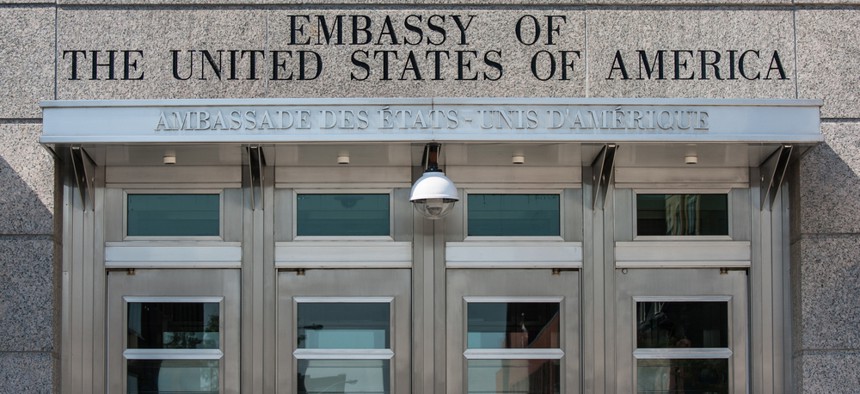
Image via David P. Lewis/Shutterstock.com
3 Reasons Young Feds Should Try to Work Overseas
The benefits, both financial and personal, can be huge.
One of the effects of a more globalized world is the increased number of overseas opportunities for employment. One of the largest overseas employers for Americans is the United States government. According to the Office of Personnel Management, as of March 2013, there are over 34,000 federal civilian employees working in foreign countries. This can include cabinet-level agencies like the Departments of State or Defense, as well as agencies like USAID and the PeaceCorps. Overseas employment provides federal employees with a number of both financial and skill-based benefits that can help build the careers of many young feds. So what are the major benefits that contribute to the decision to work overseas? I’ve highlighted my top three factors that can be HUGE influencing forces on young feds making the move abroad.
1. Living Quarters Allowance
Living Quarters Allowances, or LQA’s are monthly monetary sums given to employees stationed overseas that do not have government-provided housing. LQAs are designed to cover rent, utilities and other allowable home expenses, and are allotted based on the employee’s grade and family size. It makes up a portion of overseas employees’ pay, and the best part is that it is non-taxable. What does this mean for young feds? Young people tend to be more transient, and are typically less likely to be property owners. Living overseas and receiving LQAs allow young feds to save their money more than if they were working and renting an apartment in say, Washington DC. Not only are they receiving a regular paycheck, but rent and utilities are no longer a part of a young federal employee’s financial worries! This can be one of the biggest incentives for young feds already strapped with things like student debt, as it allows them to put more of their money away for future investments.
2. Learning a Language
Any young fed looking to break into the worlds of international development, defense, intelligence or foreign policy know that fluency in a foreign language is frequently a requirement for many positions in these fields. It is the timeless question of the chicken and the egg. Is learning a language necessary for overseas employment or is overseas employment necessary for learning a language? The answer: both. Many times employers in the aforementioned fields, both federal and private require a non-English language before employment. In this case, young feds or those who aspire to work for the government can look to agencies like USAID and the PeaceCorps that take on volunteers and field workers without the language requirement. Every language course I’ve ever taken has always touted immersion as the most effective way to achieve fluency, and the federal government definitely has avenues for young feds to live overseas and learn a language. This will then open numerous doors for young feds to continue their careers in other agencies, as their linguistic training has helped them add another weapon to their resume’s arsenal.
3. Unique Networking Opportunities
Many young people completing an undergraduate degree may shy away from volunteering for agencies like the PeaceCorps because of the lack of financial stability. However, these agencies’ benefits go far beyond the immediacy of a paycheck. The PeaceCorps especially gives job training and job searching assistance for volunteers who have completed their service. This gives young people the inside track for gaining employment with the federal government. Working abroad also can provide young feds with a network of employers outside the confines of a DC agency, expanding their ‘rolodex’ of names for future employment opportunities. Jobs like a PeaceCorps volunteer or a State Department Foreign Service Officer are unique in that they have their own group identities. Employers that have had FSO or volunteer experience may identify with applicants that share the experiences of one of these positions. This could make them more inclined to employ a person with skills and values that they can easily identify due to their shared experience.
What are the other benefits, or perhaps pitfalls, of feds working overseas that you’ve seen?
Image via David P. Lewis/Shutterstock.com






